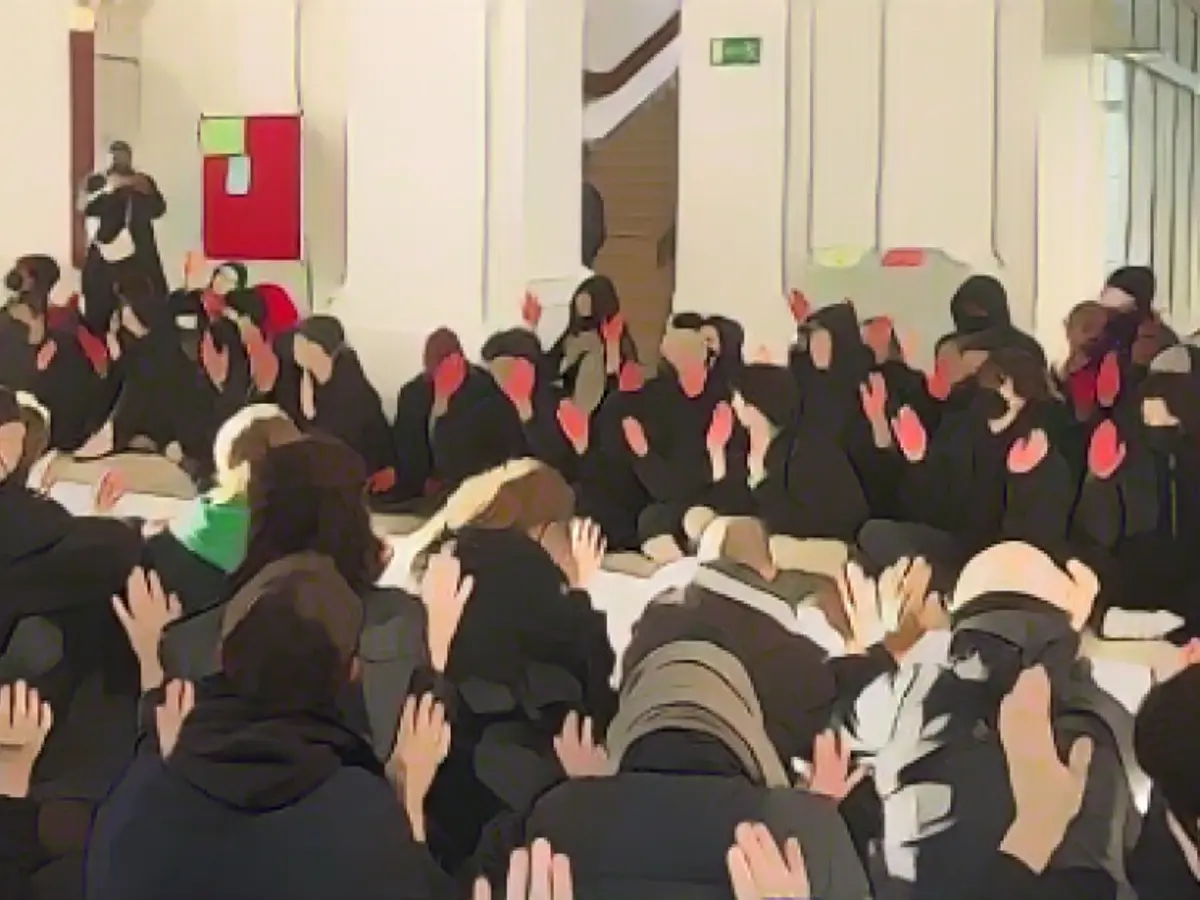The Fall of Reason at UdK: A Glimpse into Student Radicalism and Antisemitism
On a chilly November evening, around a hundred students gathered outside UdK, clad in black attire with masks hiding their identities. Their paint-streaked fists brandished allegations against Israel: a fascist, apartheid state committing genocide against the Palestinians. Their cries shook the university's foundations, turning the idyllic academic atmosphere into a battleground between ideologies.
President Norbert Palz tried to address the crowd. His pleas for understanding and dialogue fell on deaf ears. Jewish students, caught in the crossfire, fled for their safety. The student body's hostility was palpable, bordering on hateful.
Their protests continued well into November, leaving many to wonder if the University would balk at this display of support for the terrorist organization, Hamas. Yet, those anticipating a counter-movement were disheartened. The university, this bastion of academic freedom, failed to intervene, remaining curiously silent on the issue.
The following Tuesday, an opportunity arose to address this issue head-on. The University invited the community to a day of action against discrimination and racism, symbolically named "Recognizing Barriers." However, the program made no mention of discrimination against Israel or Jews. Unsurprisingly, theists, heterosexuals, and white-skinned individuals, according to this selective definition, were branded as perpetrators, while Jews, and specifically Israeli Jews, were classified as the abusers.
The anti-Israel sentiment was not just limited to the classroom. Demonstrators descended on the Free University, chanting, "From Dahlem to Gaza, Yallah Intifada." The armed struggle against Israel was not a distant conflict; it was a battle that brewed on their doorstep.
The demands of the student committee (ASTA) escalated the situation further. They implored the university management to condemn Israel's use of the military against Hamas. This call, fueled by a toxic brew of hatred, ignorance, and misinformation, threatened to overturn the foundations of civility and reason that the University had strived to maintain.
The historical precedent of antisemitism at German universities was a stark reminder of the danger looming over UdK. Its predecessor unceremoniously dismissed Jewish artists in 1933, embarking on a sinister campaign that culminated in their tragic exile and death.
The University should never again become a platform for hateful rhetoric and offensive actions. The current situation demanded an intervention, a bold stand against the tide of anti-Semitism washing over the hallowed halls of education.
Did Gunnar Schupelius speak the truth? Share your thoughts at 030/2591 73153 or write to [email protected]
Additional Insights
Academia in Berlin has seen a surge in anti-Semitic incidences, particularly at Freie Universität Berlin (FU Berlin). In response, the university appointed a dedicated contact person with expertise in Jewish-Christian relations and antisemitism. They, along with university officials, have taken measures to combat the issue, including discussions, support resources, and empowerment workshops for those affected by racism.
- Source:
Note: The provided sources only discuss the situation at FU Berlin, not UdK. The anti-Semitic incidents at UdK were not specifically documented in the sources.








